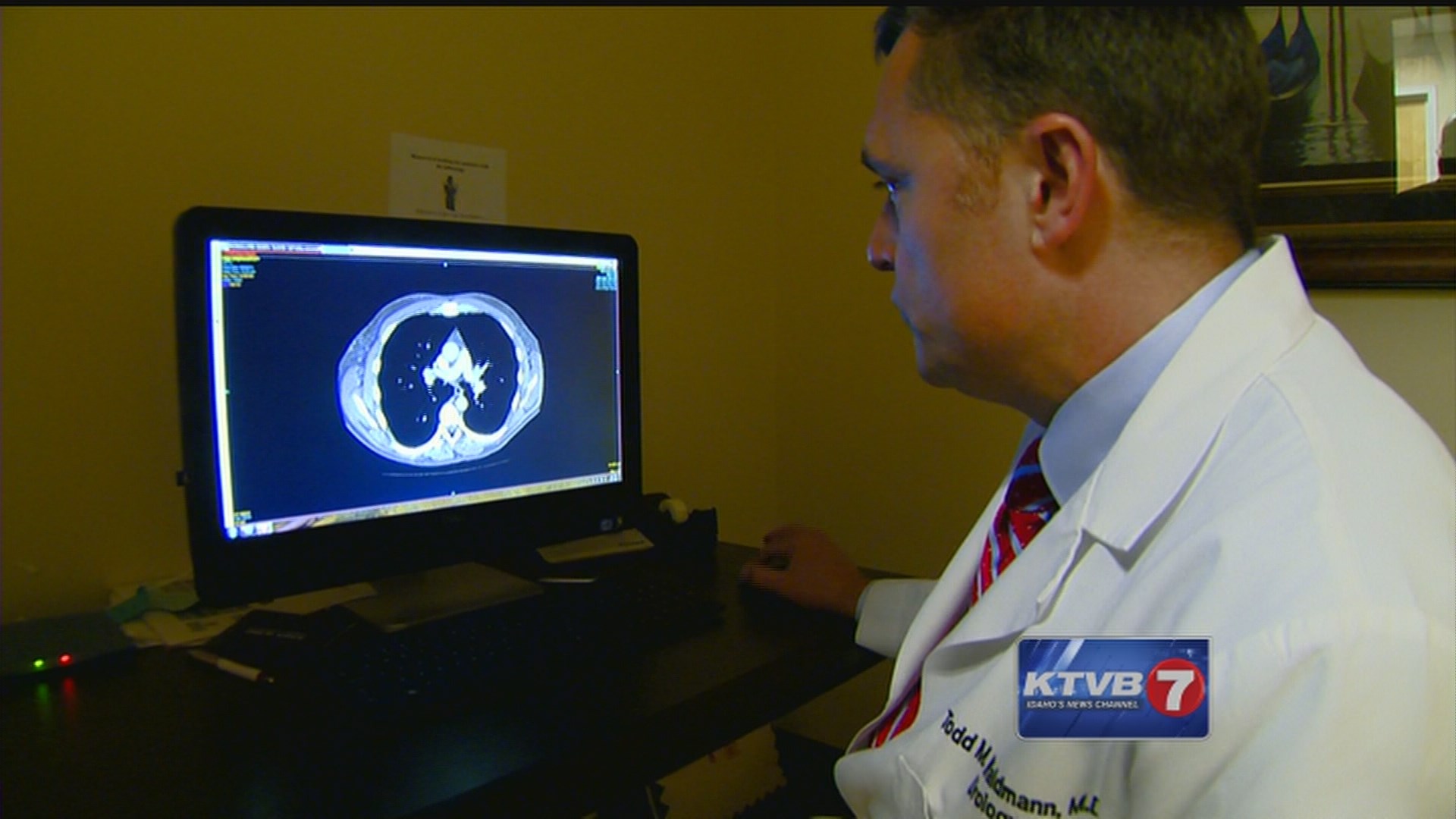BOISE -- One in six men will be diagnosed with prostate cancer. It's a disease that can spread quickly if not detected early.
It's a diagnosis that one of our own KTVB employees faced earlier this year.
Meteorologist Larry Gebert had an aggressive tumor that was discovered this spring.
After surgery, he is now clear of all cancer, but wanted to share his experience in order to push other men to get annual screenings.
Year after year, Larry Gebert has encouraged men to take control of their health.
He's promoted free prostate cancer screenings since 2006 when the Idaho Urologic Institute first opened.
Each year he would participate himself, getting an annual prostate exam and even having his blood drawn moments before a live shot.
But each time, Larry didn't just get the exam, he got the results and kept them.
"They said hang on to this paperwork because we really need to track this every year and I did, I just stuck it in a corner of my briefcase and then I just kept all of them in order so I had all that information year after year after year for 12 years," said Larry Gebert.
It was those yearly exams and Larry's diligent tracking that may have saved his life, because on April 21 he went back to Idaho Urologic Institute as a patient.
"That's when I sat there and I looked right directly at Dr. Williams and I heard the one phrase that I lost track of how many times I said on the air: 'imagine what it would be like if a doctor told you you had cancer,'" Gebert said. "But there was Dr. Williams telling me I had cancer."
For years, Larry's PSA, the number that indicates the possibility of prostate cancer, had been around two - a normal level for his age.
Suddenly, at his annual test in 2014, it jumped slightly to 3.9, a number still considered reasonable.
"Dr. Williams said to me, yeah that number is normal, but it's not normal for you which is why we need to do further testing," said Gebert.
That biopsy confirmed both the doctor and Larry's fear.
"Surprisingly, he had a significant prostate cancer, actually it was high grade, one that would be aggressive," said Dr. Joe Williams, with the Idaho Urologic Institute.
"I like all other men felt like I was immune, like this wouldn't happen to me, maybe I felt like I was more than immune because I as the guy that was out there promoting this," said Gebert.
Larry says that's when he learned cancer doesn't care who you are or what you've done to stay healthy.
In the coming weeks, he continued working, and decided to have an operation to remove his prostate.
"I pulled out my will and testament to make sure that everything was accurate" he said. "I actually worried before surgery, I really did."
Dr. Todd Waldmann performed the surgery and it went smoothly.
Then came the wait to make sure the aggressive cancer was really gone.
"When the phone call finally came in it was like feeling like I could finally exhale for the first time in about 12 weeks, from the time I was diagnosed, until the time the doctor said there's no other cancer there," said Gebert.
Just 12 days later, Larry was back doing what he's done every week for more than a dozen years.
"Well, the water skiing part, a little unusual, yeah. I don't think I've ever had anybody say I need to be water skiing right after my operation," said Dr. Todd Waldmann with the Idaho Urologic Institute.
"I felt fantastic, I felt truly alive at that moment, and I knew that I was doing what I wanted to do and really felt alive doing it," said Gebert.
He even gave Dr. Waldmann a signed copy of his first cancer free feat.
For his doctors, it was a recovery and a diagnosis they won't forget, knowing it was Larry himself who took all the right steps, preventing early what could have spread quickly.
"I think in a young man such as him at age 57, I think it saved his life," said Dr. Williams.
For those who still think the rectal exam and blood work each year isn't important, Larry has a message.
"Just look at your wife and look at your children and in your mind tell them right now ten seconds worth of discomfort for this test - you're not worth it," said Gebert.
For Larry, his family was worth it, and they're grateful he took the time and effort that many men don't. They know he did more than preach prostate cancer awareness, he lived through it.
"Prostate cancer isn't going to kill men, what it leads to will and those deaths are far worse than diagnosing and treating prostrate cancer early," said Gebert.
Recently, there have been discussions on exactly what age men should test for prostate cancer.
But, the Idaho Urologic Institute recommends that men discuss screening with their healthcare providers beginning at age 50.
And, If you have a family history of cancer, those discussions should begin even earlier.


